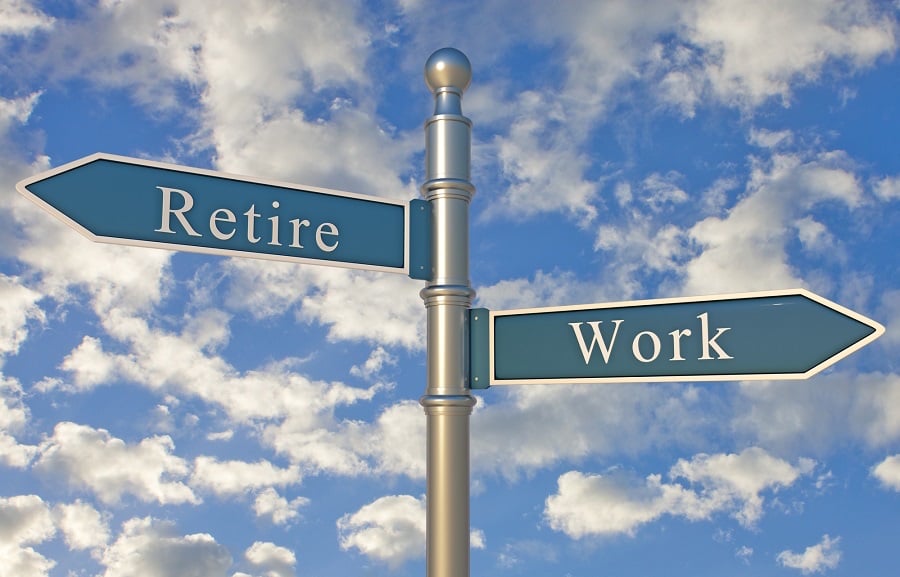

Retirement savers are anticipating a long-term financial fallout from the COVID-19 crisis, but most have not cut back on 401(k) contributions, several recent surveys show.
More than half of U.S. workers -- 54% -- say they plan to continue working during traditional retirement years, with many saying their plans to do so have been influenced by the pandemic, according to a survey released Tuesday by Voya Financial. Gen Xers were most likely to say they would continue working, at 60%, the report noted, while 59% of baby boomers and 49% of millennials said they would work into their retirement years.
That survey was conducted among more than 1,000 adults by market research firm Ipsos between March 25 and July 31.
But few people have reduced their retirement plan contributions or stopped saving entirely. According to data from record keeper Ascensus, 1.4% of participants in small-employer retirement plans stopped contributing between January and July, while 2.1% reduced their contribution rates. However, 4.5% of people increased their savings rates during that time frame, according to Ascensus, which pulled data from its plan business.
“We saw notable shifts in savings plan contributions and withdrawals in the first few months of the outbreak, as individuals experienced changes in employment and braced for the potential financial fallout,” the Ascensus report said. “Throughout the summer months, we’ve started to see some very early signs of recovery. Employers that dialed back matching or discretionary contributions to their retirement plan are reconsidering this decision.”
Most employers have not reduced the matching contributions they provide for employees, and some of those that did have since reinstated them, according to Ascensus.
Between March and July, there was a 5.5% decrease in total employer contributions to 401(k) plans, but that is more than 2 percentage points higher than the decrease as of the end of June, reflecting matches being reinstated, the company noted.
Further, only a small proportion of workers have taken the coronavirus-related distributions or plan loans allowed by the CARES Act, according to the record keeper. Just 2% of workers have taken the distributions, and about 1% have taken loans, Ascensus data show.
“These factors suggest that savers could be using other means to manage financial needs through this period or that they’re delaying otherwise planned retirement or job changes,” the report read.
While workers appear to be prioritizing retirement contributions during the crisis, they are placing less attention on other financial objectives, such as college savings, the report suggests.
Between March and July, overall one-time contributions to 529 college savings accounts were more than 16% lower than during that time frame in 2019, according to Ascensus. Leading up to the COVID-19 crisis, those savings had been rising, with one-time contributions to 529 plans up nearly 18% in January and February compared to the same period in 2019.
The lower level of recent contributions is likely influenced partly by the remote classroom reality facing college students. With many institutions operating remotely, some of this year's high school graduates are taking gap years or reconsidering college.
Many people have burned up their emergency savings during the pandemic, something that has hit older workers hardest, according to a survey of more than 5,000 people published Tuesday by CNBC and Acorns.
Paying down debt also became less of a priority, at least compared to saving for retirement, Voya’s survey found. Fifty-five percent of respondents said they would rather have enough money saved for retirement rather than go into retirement with no debt.
However, only about half of workers said they have a retirement plan, according to that survey.
Having a retirement plan at work has a significant effect on savings behavior, according to a separate report this month from Cerulli Associates. The employer match has a big role in that, with 66% of 401(k) participants surveyed saying they would almost certainly bump up their contribution rate to take advantage of a larger company match -- if, for example, the matching formula went from 3% to 5%, according to the report.
Nearly half of those survey (46%) said they started saving in the employer plan because of the match, Cerulli found.
Further, 32% of participants said they would be encouraged to save more if a personalized report from their plan provider gave projections based on their current savings showing they will have too little saved for retirement, the survey found.

Canadian stocks are on a roll in 2025 as the country prepares to name a new Prime Minister.

Two C-level leaders reveal the new time-saving tools they've implemented and what advisors are doing with their newly freed-up hours.

The RIA led by Merrill Lynch veteran John Thiel is helping its advisors take part in the growing trend toward fee-based annuities.

Driven by robust transaction activity amid market turbulence and increased focus on billion-dollar plus targets, Echelon Partners expects another all-time high in 2025.

The looming threat of federal funding cuts to state and local governments has lawmakers weighing a levy that was phased out in 1981.
RIAs face rising regulatory pressure in 2025. Forward-looking firms are responding with embedded technology, not more paperwork.
As inheritances are set to reshape client portfolios and next-gen heirs demand digital-first experiences, firms are retooling their wealth tech stacks and succession models in real time.
